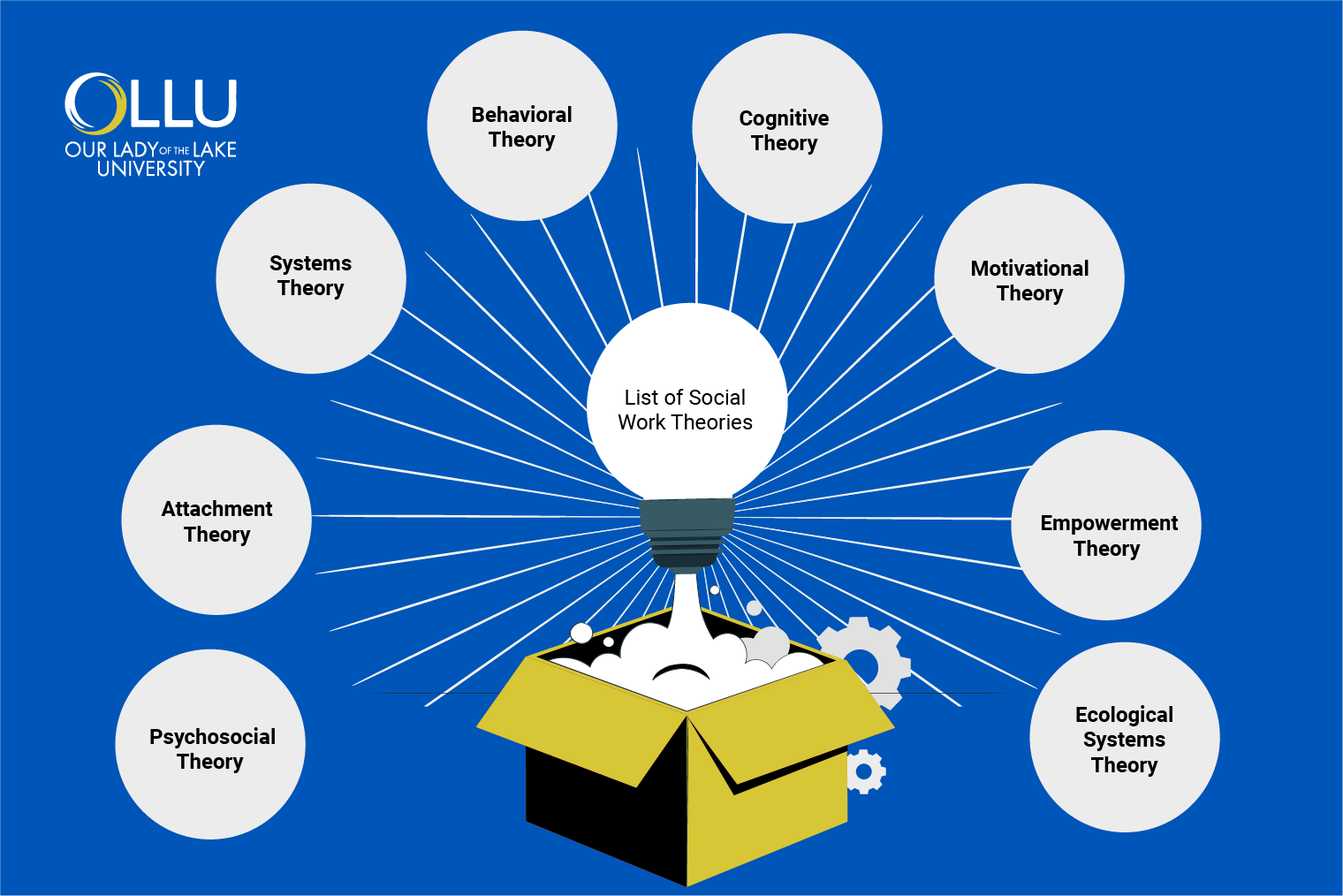
Theoretical Theories: Exploring Social Change in Social Work

The concept of social change is an essential aspect of understanding how societies evolve and adapt over time, particularly in the context of social work. As a field dedicated to improving the welfare of individuals and communities, social work not only engages with the consequences of change but also plays a critical role in facilitating it. This article explores the intersection between theoretical theories and social transformation, emphasizing the multifaceted relationship between social change and social work. We will examine various frameworks, historical perspectives, and the contributions of key theorists to illuminate how social change in social work impacts practice and professional approaches.
By understanding social change in social work, practitioners can better navigate the complexities of the social landscape, thereby enabling them to implement effective interventions and advocate for the needs of marginalized groups. This exploration will provide insight into the ways in which different theories influence social work and social change, documenting how the evolution of thought has shaped contemporary practices and policies. In doing so, we aim to shed light on the dynamic interplay between theory, practice, and the ever-evolving nature of society itself.
- Understanding Social Change in Social Work
- Theoretical Frameworks for Analyzing Social Change
- Historical Perspectives on Social Change
- Key Theorists and Their Contributions
- The Evolutionary Versus Static Theories of Social Change
- The Rise of Neo-Evolutionary Theories
- Modernization Theories and Their Critiques
- Social Change as a Revolutionary Process
- Implications for Social Work Practice
- Conclusion: Navigating Social Change in the Field of Social Work
Social change refers to the significant alterations that affect the social structures, norms, and values within a society. In the domain of social work, understanding the nuances of social change is critical, as it impacts both the individuals served and the broader community context in which social workers operate. Social workers often find themselves in positions that require them to foster social change through advocacy, education, and direct support services, necessitating a keen awareness of the factors influencing such transformations.
The relationship between social change social work is bi-directional; while social workers aim to catalyze change through their practices, they are also influenced by the ongoing changes in society. This duality underscores the importance of theoretical frameworks that inform how social workers interpret and respond to shifts in the social landscape. As new social challenges emerge, understanding these frameworks equips practitioners with the tools necessary to act responsibly and effectively, thereby promoting social justice and equity.
Through the lens of various theoretical theories, social change can be analyzed and understood from different perspectives. Each theoretical framework offers unique insights into how change occurs, the forces that drive it, and the implications for policy and practice in social work and social change. Some of the prevalent frameworks include structural functionalism, conflict theory, symbolic interactionism, and systems theory.
- Structural Functionalism: This approach views society as a complex system whose parts work together to promote stability and order. Change is seen as a natural outcome of social pressures that lead to gradual alterations in the system.
- Conflict Theory: In contrast, conflict theory emphasizes the role of power struggles and social inequality in driving change. Social workers who apply this framework might focus on the disparities that exist between different social groups and advocate for policies that promote equity.
- Symbolic Interactionism: This theory emphasizes the subjective meanings that individuals assign to their social interactions. Through the lens of social change in social work, practitioners can gain insights into the micro-level changes in attitudes and behaviors that can ripple outwards into broader social transformations.
- Systems Theory: This comprehensive perspective considers the interrelated components of individuals, families, communities, and organizations. It allows social workers to understand how changes in one area can affect the whole system.
The understanding of social change and social work has evolved significantly over time. Historical perspectives illuminate how societal views on change have shifted, affecting the approaches adopted by social work practitioners. In ancient societies, change was often perceived as a natural and cyclical process, influenced by geography, economy, and cultural beliefs. However, with the advent of the Enlightenment in the 17th and 18th centuries, a new emphasis on progress emerged, leading to the notion that societies could improve over time.
As we moved into the 19th century, influential thinkers began to explore these ideas more profoundly. Theories of social change emerged to explain the dynamics of societal evolution. Early theorists such as Auguste Comte viewed society as evolving akin to biological organisms, while Herbert Spencer applied evolutionary principles to social structures. This perspective suggested that societies progress through stages of complexity, which had direct implications for practices in social work and social change.
Key Theorists and Their Contributions
Several key theorists have significantly contributed to the understanding of social change in social work. Karl Marx, for instance, combined elements of dialectics with gradualism to articulate a theory of social change that emphasized conflict as a driving force. His analysis of class struggle highlighted how social relations can transform through collective action and upheaval, principles that still resonate within the realm of social work today.
Other notable figures include Max Weber, whose exploration of bureaucracy and rationalization provided insights into the modern state and its impact on social order. His work contributes to our understanding of how institutional frameworks influence the lives of individuals, particularly those served in social change social work.
Within the discourse surrounding social change and social work, the tension between evolutionary and static theories remains salient. Evolutionary theories posit that societies develop progressively through defined stages, reflecting an inherent tendency towards improvement and complexity. This perspective offers a framework for understanding long-term trends in social work practice, such as the increasing professionalization and specialization seen in the field.
Conversely, static theories challenge the notion of linear progression, arguing that societies exist in equilibrium until disrupted by external forces. These theories focus on the interactions and interdependencies between various components of the social system, suggesting that changes may occur in a non-linear fashion and may not always lead to improvement. For social work practitioners, understanding these complexities allows for more nuanced interventions tailored to specific community needs and circumstances.
The Rise of Neo-Evolutionary Theories
The late 20th century experienced a resurgence of interest in evolutionary thought, giving rise to neo-evolutionary theories that sought to reconcile earlier paradigms with contemporary realities. These theories acknowledge both the continuities and discontinuities in social development, emphasizing the variability and unpredictability of social evolution. Such approaches suggest that social change is not necessarily a linear trajectory towards improvement but rather a dynamic interplay of diverse influences that can yield varied outcomes.
The implications of these neo-evolutionary frameworks are profound for social work and social change, as practitioners must remain flexible and responsive to the shifting landscapes of the communities they serve. This perspective encourages a comprehensive understanding of local contexts, acknowledging that effective interventions must consider a multitude of factors, including economic, cultural, and political dynamics.
Modernization Theories and Their Critiques
Modernization theories emerged as a dominant lens through which to analyze social change, particularly in the context of global disparities between developed and developing nations. These theories typically frame modernization as a linear process that societies undergo, characterized by industrialization, urbanization, and technological advancement. In the realm of social change in social work, such perspectives often advocate for specific development interventions aimed at accelerating progress.
However, modernization theories have faced significant critiques, particularly regarding their Eurocentric assumptions that often overlook the complex historical, political, and economic contexts of non-Western societies. Critics argue that a one-size-fits-all approach is insufficient and may perpetuate existing inequalities rather than alleviate them. Within social work and social change, these critiques stress the importance of culturally sensitive practices that honor the unique experiences and needs of diverse populations.
Many theoretical frameworks highlight the notion of social change as a revolutionary process rather than a gradual evolution. This perspective aligns closely with the work of theorists like Marx, who posited that real change occurs through conflict and mobilization. Understanding social change social work as a revolutionary process underscores the potential for grassroots activism and collective action in reshaping social norms and structures.
For practitioners, recognizing the capacity for revolution takes on a transformative role in developing strategies that engage communities in their own liberation. This empowerment model fosters resilience and encourages marginalized groups to claim agency over their circumstances, aligning closely with the fundamental values of social work.
The exploration of various theoretical theories and their application to social change has critical implications for social work practice. Understanding how social change initiates, evolves, and sometimes even stagnates allows practitioners to engage more thoughtfully with their clients and communities. Social workers equipped with this knowledge can facilitate meaningful change through informed interventions, advocacy, and the fostering of social justice.
Moreover, by employing diverse theoretical frameworks, practitioners can tailor their approaches to better address the specific needs and circumstances of the individuals and communities they serve. This adaptability is crucial in a field where social conditions are constantly shifting, requiring professionals to remain vigilant and responsive to new challenges and opportunities.
In conclusion, the exploration of social change in social work through theoretical theories provides invaluable insights into the intricate dynamics at play within society. As social workers navigate the complexities of social change, they bear the responsibility to both respond to immediate needs and advocate for broader transformations that promote equality and justice. By grounding their practice in a thorough understanding of social change, social work professionals can contribute to building resilient communities capable of embracing the challenges and opportunities that change brings.
Ultimately, the intersection of social work and social change necessitates a reflective and adaptive approach that prioritizes the empowerment of individuals and communities. Embracing the lessons learned from historical perspectives, theoretical frameworks, and the contributions of key thinkers will fortify the field of social work, ensuring its relevance and efficacy in an ever-evolving social landscape.
Did you find this article helpful? Theoretical Theories: Exploring Social Change in Social Work See more here Education.
Leave a Reply






Related posts